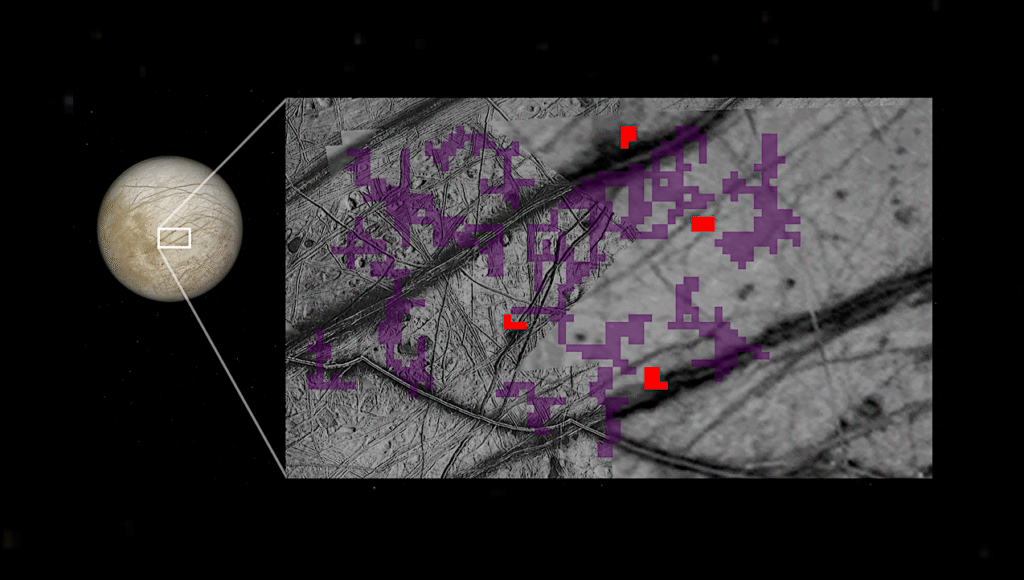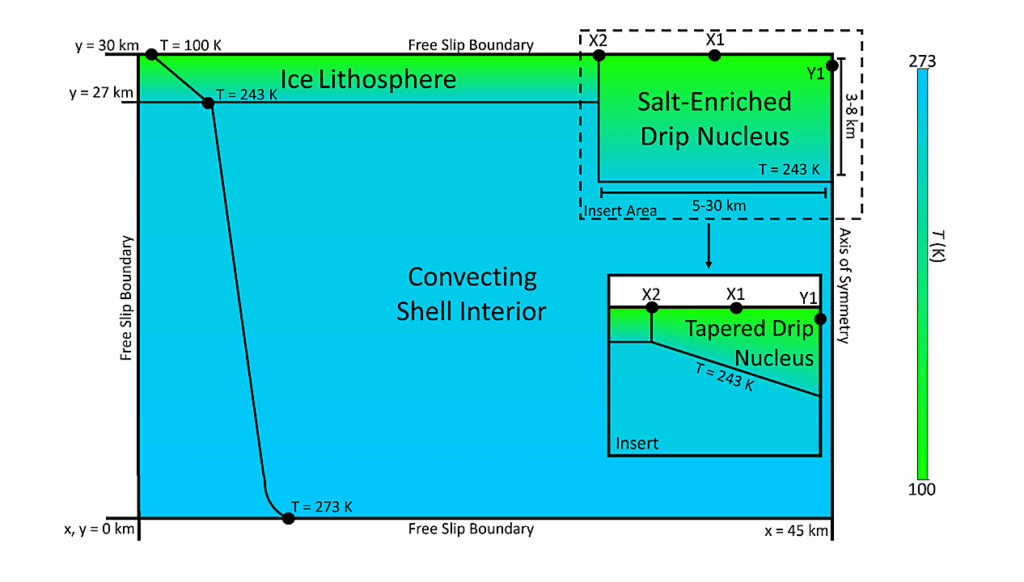Europa's Ocean May Have an Earthlike Chemical Balance

The ocean of Jupiter’s moon Europa could have the necessary balance of chemical energy for life, even if the moon lacks volcanic hydrothermal activity, finds a new study.
Europa is strongly believed to hide a deep ocean of salty liquid water beneath its icy shell. Whether the Jovian moon has the raw materials and chemical energy in the right proportions to support biology is a topic of intense scientific interest. The answer may hinge on whether Europa has environments where chemicals are matched in the right proportions to power biological processes. Life on Earth exploits such niches.
In the new study published in Geophysical Research Letters, a journal of the American Geophysical Union, scientists at NASA’s Jet Propulsion Laboratory (JPL), Pasadena, California, compared Europa’s potential for producing hydrogen and oxygen with that of Earth, through processes that do not directly involve volcanism. The balance of these two elements is a key indicator of the energy available for life. The study found that the amounts would be comparable in scale; on both worlds, oxygen production is about 10 times higher than hydrogen production.
The work draws attention to the ways that Europa’s rocky interior may be much more complex and possibly Earthlike than people typically think, according to Steve Vance, a planetary scientist at JPL and lead author of the new study. “We’re studying an alien ocean using methods developed to understand the movement of energy and nutrients in Earth’s own systems. The cycling of oxygen and hydrogen in Europa’s ocean will be a major driver for Europa’s ocean chemistry and any life there, just as it is on Earth.”
The research was funded by the NASA Astrobiology Institute, the Simons Foundation, the 973 Program, the Chinese National Natural Science Foundation, the 111 Project, and NSF.








